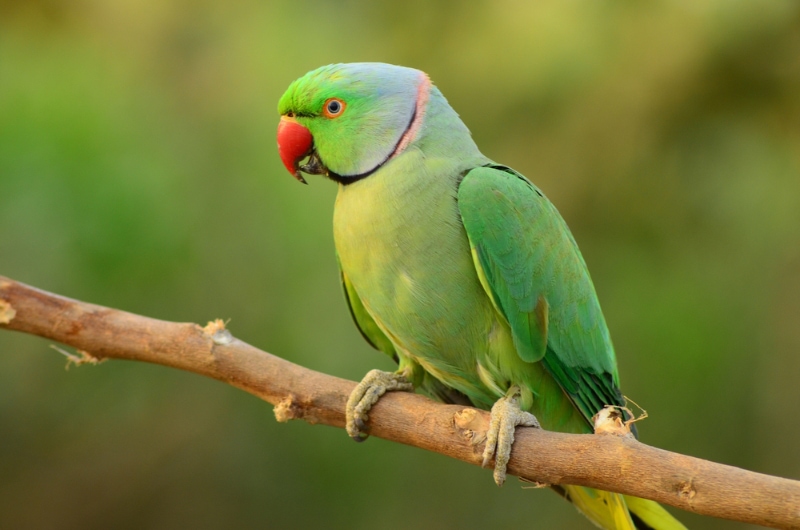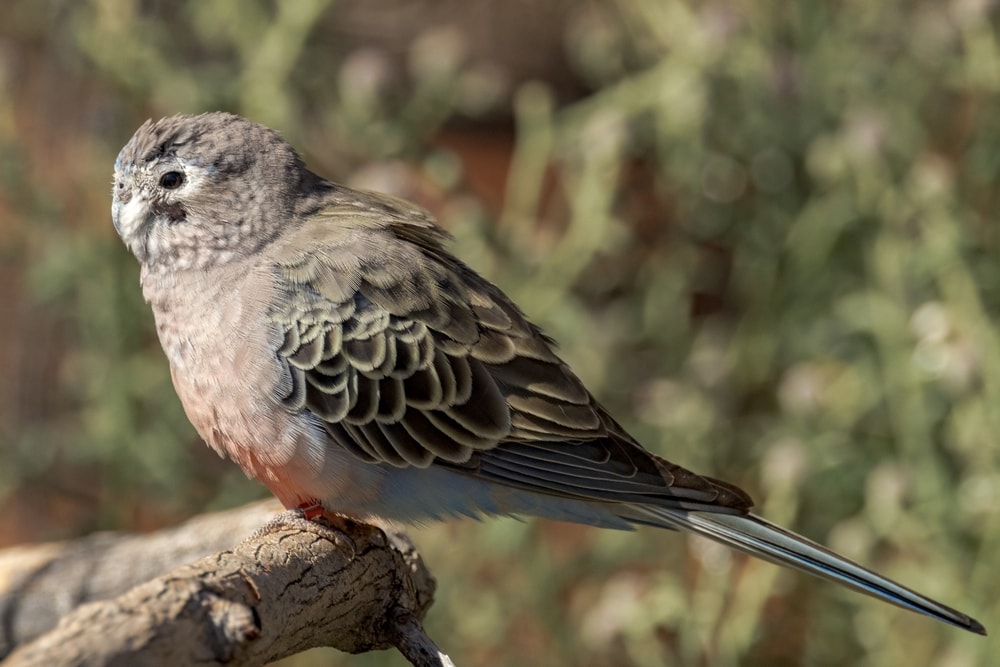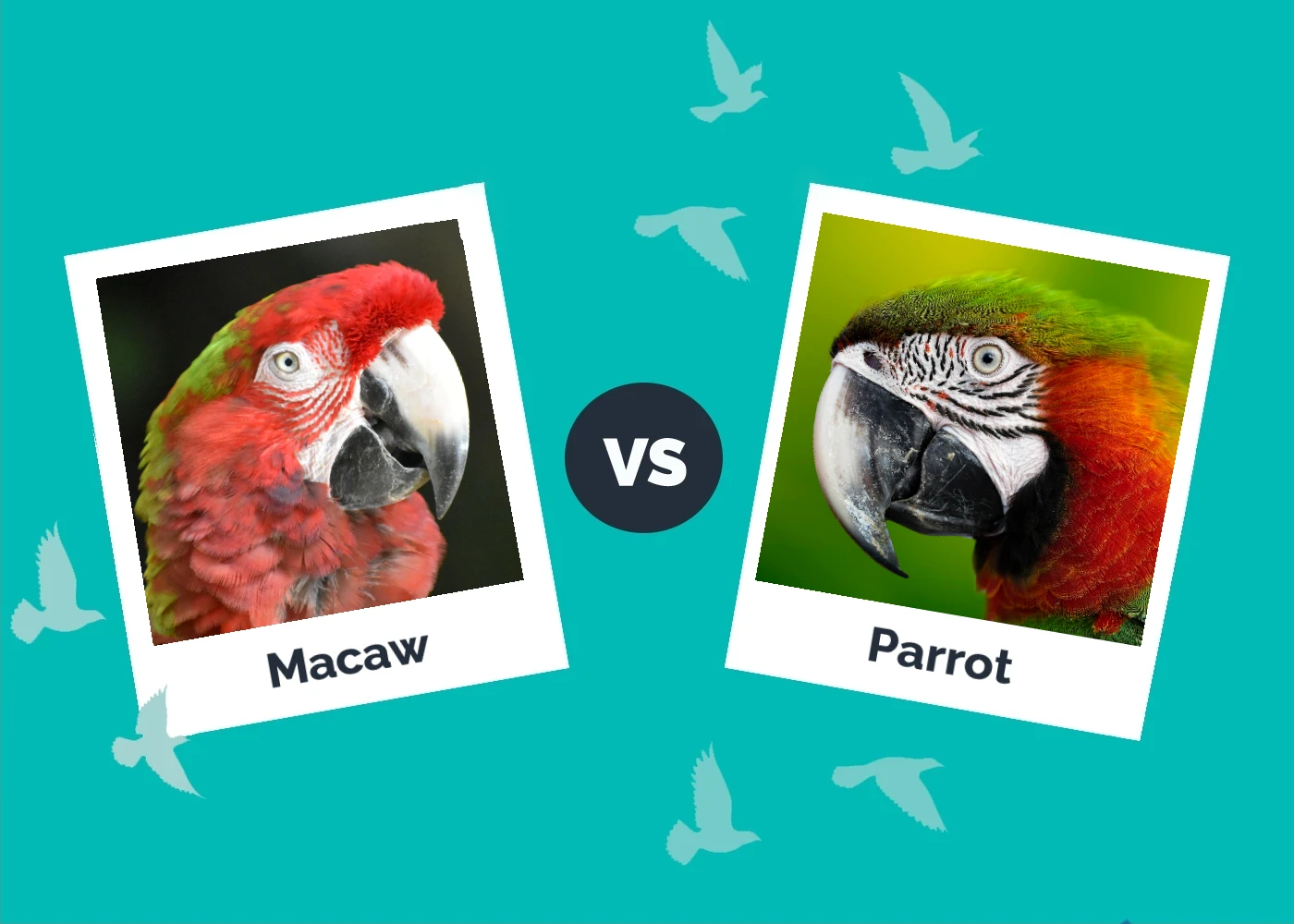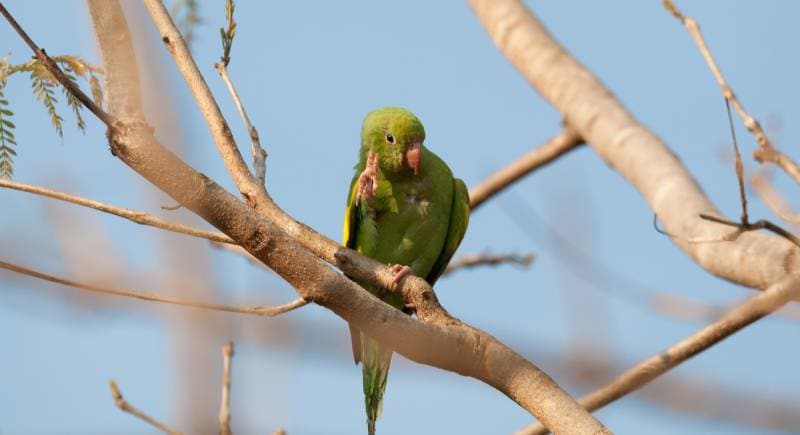How Long Do Ringneck Parrots Live: Average Lifespan, Data & Care
Updated on

Click to Skip Ahead
Also known as the Indian ringneck parakeet, African ringneck parakeet, or the rose-ringed parakeet, Psittacula krameri is primarily known for their bright, cheery color and, as the name suggests, the prominent ring-shaped markings around the neck. Also known as one of the hardiest parrots in the world, these robust, adaptable birds are known to live up to 34 years under human care, and can become avid talkers. Ringnecks are found in Africa and Southeast Asia and have successfully adapted to the US, Australia, and more countries across the globe.
Whether you have a ringneck parrot yourself and want to know more about them or you’re just curious about this ubiquitous bird, you’re in luck. Scroll down and join us as we explore more about how long ringnecks live in the wild, a bit more about them, and tips for helping your ringneck live a healthier life.
How Long Do Ringneck Parrots Live in the Wild?
Ringneck parrots live in a wide variety of diverse landscapes across the world, and their lifespans may dramatically vary based on predators, climate, and more. On average, however, ringneck parrots live 20 to 30 years. However, it’s not unusual for some individuals to live much longer, with the oldest observed ringnecks reaching an astonishing 50 years old. Under human care, 15 to 25 years is more common.

How to Care for Your Ringneck Parrot for a Long Lifespan
Feeding & Diet
Ringnecks are classified as granivores, and eat a wide swathe of standard parrot fare like nuts, seeds, fruits, grains, and occasionally protein in the form of live insects. They’re fans of crunchy foods, like celery and carrots, but love snacking on creamy bananas or crisp pears too. Most of their caloric intake comes from carbs like those in grains, veggies, or fruits. A lesser but still important portion is fatty nuts or seeds like chia, sesame, sunflower, and so on.
Protein from insects or meat makes up a small part of a ringneck’s diet, so a few mealworms or some shredded cooked chicken or turkey will make their day.
Always remove any uneaten food each day, and only off fresh fruit or vegetables. These birds love looking for and eating different tastes and textures, so make sure to provide them with a variety of foods, and place them in different locations for them to find.
Environment
Ringnecks are active birds that need the largest cage you can provide for them, or, if feasible, a parrot-proofed room dedicated to their care. If you cannot provide your ringneck with a large habitat, you may need to rethink having one. These are birds with active minds that need space to explore, and a bored bird is an unwell and destructive one. Ringnecks love to climb and play, so make sure there’s room for tree branches, perches, and other cage fixtures.

Care
Ringnecks have a charming, inquisitive, and even childlike personality that does poorly with harsh treatment. Use kind, gentle words, and handle them delicately at all times because scolding can make them fearful of you. Positive reinforcement in the form of treats for good behavior and ignoring bad behavior is the way to go with these emotionally sensitive birds.
Cleaning
Ringnecks can be messy like any bird, but they’re generally good about cleaning themselves and not making a dirty living environment. They enjoy a weekly bath but don’t need much else in the way of grooming. Regularly empty the cage of debris, and you’re on your way to a happy, healthy ringneck.
Common Health Problems
- Psittacosis: A bacterial infection that causes a disheveled appearance, flu-like symptoms, and, in severe cases, death in ringnecks. This is of particular importance, as this is a zoonotic disease, ie. humans can catch it.
- Polyomavirus: Also called APV, ringnecks are especially prone to developing skin lesions, fatigue, weight loss, and more severe signs like dehydration or vomiting.
- Aspergillosis: A fungal infection that causes respiratory problems like trouble breathing, wheezing, or worse in susceptible birds.

How to Tell Your Ringneck Parrot’s Age
Birds are harder to estimate the age of than a human or even a dog, with a totally different life cycle that marks them in even more subtle ways. Let’s check out a few ways you can roughly tell a ringneck’s age. You might get close, but as they can live to over 30 years old, you can never be sure unless you had them from a chick.
- Scalier feet are more likely to belong to an older bird.
- Check the neck, as both males and females gain their neck ring at about 2 years old.
- Look at their beak, as older birds tend to have older beaks than younger birds.
- Shinier plumage is a stronger indication of a mature bird in their prime, while young birds have dull plumage from frequent molting.
Conclusion
Ringneck parrots are popular pets that can live over 30 years under human care in good conditions, but some in the wild have been known to live to 50 years. By providing a spacious environment, keeping it clean, and feeding your ringneck a proper diet, you can stave off all the worst health problems the breed faces.
Featured Image Credit: Chetan Mahajan, Shutterstock













